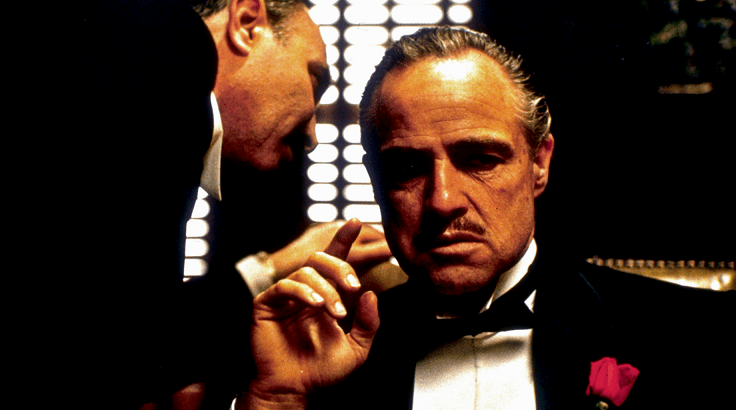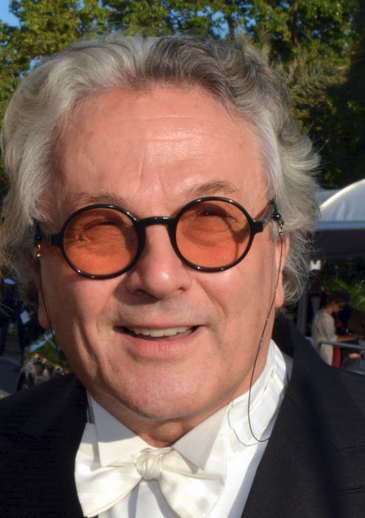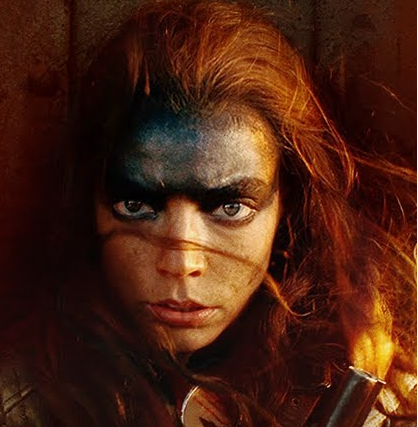In the vast realm of Hollywood’s greatest directors, one name consistently shines brighter than the rest – Francis Ford Coppola. A masterful storyteller and visionary, Coppola has gifted the world with some of the most iconic films in cinematic history. From epic tales of organized crime to heart-wrenching dramas and mesmerizing adaptations, his filmography is a treasure trove of brilliance waiting to be unveiled. But what sets Francis Ford Coppola apart from his contemporaries? What is it about his movies that captivate audiences and leave an indelible mark on their souls? In this blog post, we embark on a journey to explore the enigmatic world of Coppola’s genius.

We delve deep into his best movies, dissecting their intricate storylines, analyzing the mesmerizing performances, and reveling in the breathtaking cinematography that brings his visions to life. From the gripping family saga of “The Godfather” to the hauntingly beautiful “Apocalypse Now,” we uncover the layers of Coppola’s storytelling prowess. Each film is a testament to his ability to immerse viewers into vivid worlds, where emotions run high and thought-provoking narratives unfold. With each passing frame, Coppola leaves an undeniable mark on our hearts and minds.
Table of Contents
Beyond the silver screen, we also take a closer look at the man behind the movies. Francis Ford Coppola’s journey as a director is as fascinating as the stories he tells. The struggles, triumphs, and creative choices that shaped his career reveal a true artist committed to his craft. So, join us as we peel back the layers of mystery surrounding Francis Ford Coppola’s brilliance. Prepare to be enthralled, inspired, and moved by the sheer depth and artistry of his films. Let’s dive into a world where storytelling reigns supreme and where Francis Ford Coppola’s name forever resides among the greatest directors of all time.
The Rise of Francis Ford Coppola: A Journey to Excellence
Francis Ford Coppola’s rise to excellence in the world of filmmaking is a testament to his unwavering passion, relentless dedication, and unparalleled talent. From his humble beginnings to becoming one of the most celebrated directors in Hollywood, Coppola’s journey is nothing short of extraordinary.Born on April 7, 1939, in Detroit, Michigan, Francis Ford Coppola was destined for greatness. His father, Carmine Coppola, was a composer and musician, while his mother, Italia Pennino Coppola, had a strong artistic inclination.
Growing up in a creative household laid the foundation for young Francis’ artistic pursuits.Coppola’s early years were marked by a deep love for storytelling and cinema. He attended Hofstra University and later graduated with a degree in theater arts from UCLA. It was during his time at UCLA that he honed his skills as a filmmaker and began making short films that showcased his unique vision.In 1963, Coppola made his directorial debut with the film “Dementia 13.” Although it didn’t achieve commercial success at the time, it showcased his ability to create atmospheric tension and foreshadowed the brilliance that would come to define his later works.
“The Godfather”: An Epic Tale of Power, Loyalty, and Betrayal
One cannot discuss Francis Ford Coppola without delving into the masterpiece that is “The Godfather.” Released in 1972 and based on Mario Puzo’s novel of the same name, this epic crime drama catapulted Coppola into cinematic immortality.”The Godfather” tells the story of the Corleone family – an Italian-American mafia dynasty led by Don Vito Corleone (played by Marlon Brando). The film explores themes of power struggles, loyalty, family dynamics, and moral ambiguity. With its impeccable screenplay and unforgettable performances, “The Godfather” remains a cinematic tour de force.
Unveiling the Brilliance of “Apocalypse Now”: War, Madness, and Redemption
In 1979, Coppola unleashed another masterpiece upon the world – “Apocalypse Now.” This war epic set during the Vietnam War is a haunting exploration of the human psyche in the face of madness and chaos.Starring Martin Sheen as Captain Benjamin L. Willard, the film follows his journey upriver to assassinate Colonel Kurtz (played by Marlon Brando), a renegade Special Forces officer who has gone rogue.
Along the way, Willard encounters various characters and witnesses the horrors of war firsthand.”The Conversation”: Surveillance, Paranoia, and MoralityReleased in 1974, “The Conversation” is a psychological thriller that delves into themes of surveillance, paranoia, and morality. The film stars Gene Hackman as Harry Caul, a surveillance expert who becomes entangled in a dangerous web of secrets and deception.Coppola’s masterful direction keeps viewers on edge as they navigate through Caul’s increasingly troubled mind. With its thought-provoking narrative and superb performances, “The Conversation” solidified Coppola’s reputation as a director capable of crafting gripping psychological dramas.
“Rumble Fish”: A Poetic Exploration of Youth, Identity, and Rebellion
In 1983, Coppola directed “Rumble Fish,” an adaptation of S.E. Hinton’s novel of the same name. This visually stunning film explores themes of youth alienation, identity crisis, and rebellion against societal norms.Set in a decaying urban landscape reminiscent of classic film noir, “Rumble Fish” follows Rusty James (played by Matt Dillon), a young delinquent struggling to find his place in the world. With its striking black-and-white cinematography and poetic storytelling style, this film showcases Coppola’s ability to create visually captivating narratives.

The Beauty and Tragedy of “Bram Stoker’s Dracula”
In 1992, Coppola brought Bram Stoker’s iconic vampire tale to life with “Bram Stoker’s Dracula.” This gothic horror film is a visual feast, filled with sumptuous costumes, elaborate sets, and mesmerizing performances.Starring Gary Oldman as Count Dracula and Winona Ryder as Mina Harker, the film explores themes of love, desire, and the eternal struggle between good and evil. Coppola’s unique vision breathes new life into the classic story, creating a hauntingly beautiful cinematic experience.
“The Outsiders”: A Coming-of-Age Masterpiece
Based on S.E. Hinton’s novel of the same name, “The Outsiders” is a coming-of-age drama that explores themes of friendship, loyalty, and social class divisions. Released in 1983, this film boasts an ensemble cast of young talents who would go on to become some of Hollywood’s biggest stars.Coppola expertly captures the raw emotions and struggles faced by the characters as they navigate through adolescence in a world divided by societal expectations. With its poignant storytelling and heartfelt performances, “The Outsiders” remains a timeless masterpiece.
Francis Ford Coppola’s Creative Process: Decisions That Define His Films
Behind every great director lies a unique creative process that shapes their films. Francis Ford Coppola is no exception. Known for his meticulous attention to detail and unwavering commitment to his artistic vision, Coppola has crafted an impressive body of work that continues to inspire filmmakers around the world.Coppola approaches each project with meticulous planning and research. He immerses himself in the subject matter, delving deep into its historical context or exploring its emotional core. This dedication allows him to create authentic worlds that resonate with audiences on a profound level.
One aspect that sets Coppola apart is his ability to collaborate with actors. He believes in fostering a creative environment where actors can fully embody their characters and bring them to life. This collaborative approach often leads to remarkable performances that elevate his films to new heights.Another defining aspect of Coppola’s creative process is his attention to visual storytelling. He carefully crafts each frame, utilizing cinematography, production design, and costumes to enhance the narrative and evoke specific emotions. His films are a visual feast, with every detail meticulously planned and executed.
Legacy and Influence: Francis Ford Coppola’s Impact on Filmmaking
Francis Ford Coppola’s impact on filmmaking extends far beyond his own body of work. His innovative techniques, bold storytelling choices, and unwavering commitment to artistic integrity have left an indelible mark on the industry.Coppola’s influence can be seen in the works of countless filmmakers who have been inspired by his visionary approach. Directors such as Quentin Tarantino, Martin Scorsese, and Sofia Coppola (his daughter) have all cited him as a major influence on their own careers.
His contributions to cinema have been recognized with numerous awards and accolades, including five Academy Awards. But perhaps his greatest legacy lies in the enduring impact of his films on audiences around the world. From “The Godfather” trilogy to “Apocalypse Now,” Coppola’s movies continue to captivate viewers with their timeless themes and powerful storytelling.
The Immortal Brilliance: Forever Remembering Francis Ford Coppola’s Legacy
As we reflect on the brilliance of Francis Ford Coppola’s career, it becomes clear that his legacy will forever be etched in the annals of cinematic history. His ability to transport audiences into vivid worlds filled with complex characters and thought-provoking narratives is a testament to his genius as a filmmaker.From the gripping family saga of “The Godfather” to the haunting journey of “Apocalypse Now,” Coppola’s films have left an indelible mark on the collective consciousness of moviegoers.
His unique vision, meticulous attention to detail, and unwavering commitment to his craft have set him apart as one of the greatest directors of all time.As we celebrate his remarkable body of work, let us remember Francis Ford Coppola as a true artist who dared to push boundaries, challenge conventions, and create films that will continue to inspire generations to come. His brilliance will forever shine brightly in the pantheon of cinema, reminding us of the power of storytelling and the enduring impact of a visionary filmmaker.
Mini Bio
Francis Ford Coppola was born on April 7, 1939, in Detroit, Michigan. He is an American film director, producer, and screenwriter who has made a significant impact on the world of cinema. Coppola’s career spans over five decades and includes some of the most iconic films in history.

Recent News
Despite being in his eighties, Francis Ford Coppola continues to make headlines with his creative endeavors. In recent years, he has focused on independent filmmaking and experimental projects that allow him complete artistic freedom. His dedication to pushing boundaries and exploring new storytelling techniques is a testament to his unwavering passion for the craft.
Why did the legendary Francis Ford Coppola give up on creating great movies?
It is a common misconception that Francis Ford Coppola gave up on creating great movies. While it is true that his later career has been less prolific compared to his earlier years, it would be unfair to say that he has given up on his craft.Coppola’s filmmaking journey has been marked by both triumphs and challenges.
After experiencing tremendous success in the 1970s with films like “The Godfather” and “Apocalypse Now,” he faced financial difficulties and struggled to secure funding for his projects.Despite these setbacks, Coppola continued to create films that showcased his unique vision and storytelling prowess. While they may not have achieved the same level of critical acclaim as his earlier works, they still bear the mark of a true artist committed to pushing boundaries and exploring new artistic territories.
Did anyone think Francis Ford Coppola was a better director than George Lucas?
Francis Ford Coppola and George Lucas are both highly respected directors who have made significant contributions to cinema. While their styles may differ, they each possess their own unique strengths and talents.During their early careers, both directors were part of a group known as the “New Hollywood” movement. This group consisted of young filmmakers who sought to challenge the traditional Hollywood system and create films that were more personal and innovative.While opinions may vary, it is safe to say that both Coppola and Lucas have left an indelible mark on the world of filmmaking. Their contributions continue to inspire aspiring directors and shape the landscape of cinema.
Is Francis Ford Coppola overrated?
The question of whether Francis Ford Coppola is overrated is subjective and largely depends on individual opinions. While some may argue that his reputation as one of the greatest directors in history is well-deserved, others may hold a different view.Coppola’s body of work speaks for itself, with films like “The Godfather” trilogy, “Apocalypse Now,” and “The Conversation” standing as testaments to his talent and vision. His ability to craft compelling narratives, elicit powerful performances from actors, and create visually stunning films has earned him critical acclaim and a dedicated fan base.Ultimately, whether or not one considers Coppola overrated is a matter of personal taste. However, it is undeniable that his impact on cinema cannot be ignored.
How come Francis Ford Coppola had to constantly fight with the studio system when he was considered the best director of his time?
Despite being hailed as one of the best directors of his time, Francis Ford Coppola often found himself at odds with the studio system. This can be attributed to several factors.Firstly, Coppola’s uncompromising artistic vision often clashed with the commercial interests of studios. He was known for pushing boundaries and challenging conventions, which sometimes made executives uncomfortable. This led to creative differences and conflicts during production.Secondly, financial pressures also played a role in Coppola’s battles with studios.
His ambitious projects often required substantial budgets, which put him at odds with studio executives who were primarily concerned with profitability. This tension sometimes resulted in compromises being made or projects being scaled back.Lastly, it is worth noting that the film industry is a complex and ever-changing landscape. Even the most revered directors can face challenges and setbacks in their careers. Coppola’s struggles with the studio system are a testament to the difficulties faced by many filmmakers, regardless of their talent or reputation.
What are some underrated films directed by Francis Ford Coppola?
While Francis Ford Coppola is best known for his iconic films like “The Godfather” trilogy and “Apocalypse Now,” he has also directed several underrated gems throughout his career. These films may not have received the same level of recognition as his more famous works but are still worth exploring.One such film is “Tucker: The Man and His Dream” (1988), a biographical drama about Preston Tucker, an American automobile designer and entrepreneur.
The film explores Tucker’s ambitious attempt to revolutionize the automotive industry and the challenges he faces along the way.Another underrated Coppola film is “The Rainmaker” (1997), based on John Grisham’s novel of the same name. This legal drama follows a young lawyer who takes on a powerful insurance company in a case that could make or break his career. With its compelling story and stellar performances, “The Rainmaker” showcases Coppola’s ability to craft engaging narratives outside of his more well-known genres.
How did Francis Ford Coppola influence George Lucas in his early career?
Francis Ford Coppola played a significant role in shaping the early career of George Lucas. The two directors had a close working relationship that began when Lucas was still a film student at USC School of Cinematic Arts.Coppola recognized Lucas’ talent and potential early on, becoming a mentor figure to him. He provided guidance, support, and opportunities for Lucas to develop his skills as a filmmaker. This included producing Lucas’ breakout film “American Graffiti” (1973), which went on to become a critical and commercial success.
Furthermore, it was through Coppola’s production company American Zoetrope that Lucas was able to secure funding for his ambitious space opera project – “Star Wars.” Despite initial skepticism from studios, Coppola’s belief in Lucas’ vision helped bring the iconic franchise to life.Coppola’s influence on Lucas can be seen in their shared commitment to pushing boundaries and challenging the traditional Hollywood system. Both directors were part of the “New Hollywood” movement, which sought to create more personal and innovative films.
What is working with Francis Ford Coppola like Is it as difficult as Ive read?
Working with Francis Ford Coppola can be an exhilarating and challenging experience. Known for his meticulous attention to detail and artistic vision, Coppola has a reputation for demanding the best from his cast and crew. While some may find it difficult to work under such high standards, others appreciate the opportunity to collaborate with a true master of the craft. Coppola’s passion for storytelling and his ability to create compelling narratives make the effort worthwhile. Despite the challenges, those who have had the privilege of working with Francis Ford Coppola often speak of the invaluable knowledge and insight gained from the experience.
Why didnt Francis Ford Coppola want to make The Godfather films?
While Francis Ford Coppola is renowned for directing The Godfather films, it might surprise some to know that he initially had reservations about taking on the project. Despite being attracted to Mario Puzo’s novel, Coppola hesitated due to his concerns about glorifying the Mafia. However, he was ultimately persuaded by the opportunity to explore themes of family, power, and morality. Coppola’s decision to helm The Godfather not only resulted in cinematic masterpieces but also solidified his status as one of the greatest directors of all time. His ability to bring complex narratives to life is evident throughout his illustrious career.
Is Francis Ford Coppolas IQ really 117?
Francis Ford Coppola, the renowned filmmaker, has often been associated with an IQ of 117. While it is difficult to ascertain the accuracy of this claim, it is important to note that IQ tests measure only a specific type of intelligence. Coppola’s genius lies in his ability to craft compelling narratives and bring them to life on the silver screen. With masterpieces like “The Godfather” trilogy and “Apocalypse Now,” he has cemented his status as one of the greatest directors of all time. Whether or not his IQ is truly 117, there is no denying the brilliance and impact of his work.
Whose movies do you find more appealing Alfred Hitchcock or Francis Ford Coppola?
When it comes to the question of whose movies are more appealing, Alfred Hitchcock or Francis Ford Coppola, it ultimately boils down to personal preference. Both directors have made significant contributions to the world of cinema in their own unique ways. Alfred Hitchcock is known for his mastery of suspense and thrillers, with classics like “Psycho” and “Vertigo” captivating audiences for generations. On the other hand, Francis Ford Coppola’s films, such as “The Godfather” trilogy and “Apocalypse Now,” showcase his storytelling prowess and ability to delve into complex themes. Whether you prefer the tension-filled plots of Hitchcock or the epic narratives of Coppola, both directors have left an indelible mark on the film industry.
What is Francis Ford Coppolas opinion on sequels and prequels in cinema?
Francis Ford Coppola, the legendary filmmaker, has expressed his opinion on sequels and prequels in cinema. According to him, the reliance on sequels and prequels has become a trend in the industry, often driven by financial motives rather than creative ones. Coppola believes that filmmakers should focus on original storytelling and taking risks, rather than relying on the success of previous films. He advocates for the exploration of new ideas and pushing boundaries, which he considers essential for the growth and evolution of cinema. Coppola’s viewpoint challenges the prevailing mindset in Hollywood and encourages filmmakers to prioritize artistic integrity over commercial success. His vision has made him one of the most influential directors of our time.
What did soldiers think of Francis Ford Coppolas film Apocalypse now How close was it to reality on their front lines during the Vietnam war?
During the Vietnam War, soldiers had varying opinions about Francis Ford Coppola’s film “Apocalypse Now.” While some believed that the film accurately depicted the chaos and psychological toll of war on the front lines, others felt that it exaggerated certain aspects for dramatic effect. Despite the fictional narrative, the film resonated with soldiers who appreciated its exploration of the moral ambiguity and existential despair that they experienced. Although “Apocalypse Now” may not have been a completely accurate representation of their reality, it captured the essence of the Vietnam War and left a lasting impact on those who served. Francis Ford Coppola’s ability to delve into the complexities of war is a testament to his brilliance as a director.
Why did Francis Coppola accrue a reputation for constantly falling out with actors during his career as a director producer movies producers directors movies business Hollywood actors drama?
Francis Coppola, a renowned director and producer in Hollywood, has often been associated with frequent conflicts with actors throughout his career. However, it is important to note that these controversies do not overshadow his immense talent and contribution to the film industry. Coppola’s movies have left an indelible mark on cinema, with classics like “The Godfather” trilogy and “Apocalypse Now.” While his working style may have been intense and demanding, it is undeniable that his dedication to his craft has resulted in some of the most iconic films of all time. Despite the drama, Coppola’s brilliance as a director and producer continues to be celebrated, making him a true legend in the business.

What made Francis Ford Coppola change his mind about making a third movie of The Godfather series after initially saying no to it when Mario Puzo had written a sequel novel titled The Family?
Despite initially refusing to make a third movie in The Godfather series, Francis Ford Coppola eventually changed his mind. The catalyst behind this decision was Mario Puzo’s sequel novel titled The Family. The book provided a compelling narrative continuation for the iconic story, and it reignited Coppola’s passion for the franchise. Realizing the potential to further explore the complex dynamics of the Corleone family, Coppola recognized the opportunity to create another masterpiece. This change of heart showcases Coppola’s dedication to storytelling and his ability to recognize the artistic potential in unexpected places.
Why did Francis Ford Coppola think that The Godfather would be a flop while he was directing it and what made it become such a massive success?
During the production of “The Godfather,” Francis Ford Coppola had doubts about its success. Despite his reservations, the film went on to become a monumental success. The key factors that contributed to its massive popularity were its compelling storytelling, stellar performances by the cast, and Coppola’s masterful direction. The film’s intricate plot, which delved into the world of organized crime, captivated audiences worldwide. Marlon Brando’s iconic portrayal of Don Vito Corleone, combined with Al Pacino’s nuanced performance as Michael Corleone, elevated the film to new heights. Coppola’s attention to detail and his ability to create a rich and immersive cinematic experience made “The Godfather” a timeless classic in the world of filmmaking.
Honestly what happened to Francis Ford Coppola s filmmaking after the 1970 s Was his illustrious success in the 1970 s a lucky streak never to be repeated Did he just get lazy and or lose his creative touch Did?
Francis Ford Coppola, the renowned filmmaker, experienced a remarkable success in the 1970s with movies like “The Godfather” and “Apocalypse Now.” However, his subsequent work didn’t quite reach the same level of acclaim. Some speculate that his early success was merely a stroke of luck, while others wonder if Coppola became complacent or lost his creative touch. Regardless, it’s important to acknowledge that Coppola continued to make films throughout the years, exploring different genres and themes. While his later works may not have garnered the same attention as his 1970s classics, they still showcase his unique vision and storytelling abilities.
The Captivating World of “The Conversation”: Surveillance, Paranoia, and Morality
The Conversation” is a captivating film that delves into the themes of surveillance, paranoia, and morality. Directed by Francis Ford Coppola, this movie takes us on a thought-provoking journey through the mind of a surveillance expert. As the protagonist becomes increasingly paranoid about the consequences of his work, we are forced to question the morality of surveillance and the impact it has on our lives. Coppola’s masterful storytelling and attention to detail make “The Conversation” a must-watch for fans of suspenseful thrillers and those interested in exploring the ethical implications of our increasingly connected world.
https://7artmovie.com/the-godfather-always-one-of-the-best-movies/
https://7artmovie.com/the-godfather-questions-part-1/
https://7artmovie.com/the-godfather-all-answered-part-2/
https://7artmovie.com/the-godfather-director/
https://7artmovie.com/apocalypse-now-movie-review/
https://www.imdb.com/name/nm0000338/?ref_=nm_mv_close




